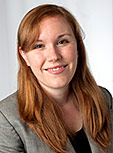 Susan Kayser
Susan Kayser
Indiana University
Using Strong Stakeholders to Prevent Free-Riding in Weak Voluntary Programs
Voluntary programs have provided a popular means for companies to privately regulate the working conditions, environmental management, quality, and ethical behaviours of their subsidiaries and suppliers. Some preliminary research suggests that ‘weaker’ voluntary programs, programs with lax entry requirements that lack third-party monitoring, allow companies to free-ride, which can render them ineffective. However, we identify several factors that reduce the ability of companies to free ride in weak programs that have lax requirements. Identifying these factors will aid in program design and allow managers to select programs that are more likely to be effective in conveying to their stakeholders a clear signal of their ethical superiority.
Biography
Susan is the Michele Fratianni Doctoral Fellow in the Business Economics and Public Policy at the Kelley School of Business, Indiana University. Her dissertation work focuses on corporate social responsibility and the efficacy of social and environmental voluntary programs. Specifically, she studies issues of free-riding (the act of a company joining a voluntary program to benefit from appearing ethically superior without actually changing their behavior), greenwashing (the act of promoting the company’s environmental achievements without disclosing its shortcomings), and even bluewashing (which refers to companies attempting to distract stakeholders away from their misdeeds by wrapping themselves in the United Nation’s blue flag), which arise in voluntary programs. Prior to her dissertation work, Susan received her Bachelor of Business Administration at the University of Cincinnati in Finance and Business Economics.
